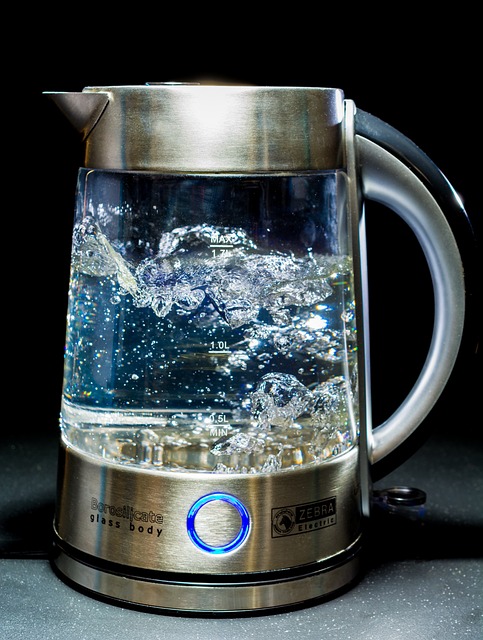Rusty water from your heater is a clear warning sign – it indicates internal corrosion, reduced tank lifespan, and potential health risks due to metallic substances in your drinking water. Unusual noises like banging or squealing also signal worn-out parts. If you notice rust, leaks, or strange odors, prioritize safety by contacting a professional immediately to assess and replace your water heater before contamination or fire hazards occur. Regular maintenance is key, but these signs demand prompt attention.
Are you tired of rusty water, persistent leaks, or mysterious noises coming from your water heater? It might be time to consider a new one. This guide explores the signs you need a new water heater, focusing on rusty water and its impact on health, financial costs of leaks, and strange noises indicating potential issues. By understanding these indicators, you can proactively address problems and ensure a reliable hot water supply.
- Rusty Water: More Than Just an Unsightly Problem
- – The signs of rust and its impact on water quality
- – Health risks associated with consuming water from rusty pipes
Rusty Water: More Than Just an Unsightly Problem

Rusty water isn’t just an aesthetic concern; it’s a clear sign that something is amiss with your water heater. This issue stems from corrosion inside the tank, often due to mineral buildup and age. While it might seem like an insignificant problem, consuming or using water with rust can be harmful. Rust particles can end up in your beverages and dishes, posing potential health risks. Moreover, rusty water indicates a weakened tank that could lead to more severe leaks and even fires if not addressed promptly.
When you notice rust on the outside of your water heater or suspect it through discolored, sandy water flowing from your taps, it’s a strong indicator that it’s time to consider a replacement. Ignoring these signs can result in more frequent repairs, higher energy bills, and potential safety hazards. Recognizing the problem early will help you avoid costly damages and ensure a reliable hot water supply for your household.
– The signs of rust and its impact on water quality

Rusty water is one of the clearest signs that your water heater needs replacing. Rust forms when metal tanks corrode, often due to exposure to acidic water or sediment buildup. As rust accumulates, it not only reduces the tank’s lifespan but also impairs water quality. The rust can leave behind metallic tastes and odors, affecting the overall drinking experience. Moreover, rust particles can damage your plumbing system and appliances, leading to additional repairs.
When rust is present in your water supply, it indicates that contaminants are leaching into your water from the heater’s tank. This can result in health risks, particularly for those with sensitive immune systems or conditions requiring clean, unadulterated water. Additionally, unusual noises coming from your water heater, such as banging, rumbling, or squealing, could be signs of rust buildup inside the tank or worn-out parts, further emphasizing the need for a replacement.
– Health risks associated with consuming water from rusty pipes

Consuming water from rusty pipes can pose significant health risks. While some rust may be harmless, extensive corrosion indicates a potential leaching of metallic substances like lead and iron into your drinking water. These metals are known to cause various health issues ranging from digestive problems, nausea, and fatigue to more severe conditions such as anemia and, in extreme cases, damage to vital organs. Children and the elderly are particularly vulnerable to these effects.
Signs you need a new water heater include noticeable rust on the exterior or inside the tank, unusual leaks, and persistent strange noises coming from the heater. If left unattended, these issues can lead to more severe problems, including water contamination and even fire hazards due to overheating caused by damage to electrical components. Regular maintenance can help extend the life of your water heater, but when these signs appear, it’s crucial to prioritize safety and get a professional to assess or replace your unit promptly.
If you’ve noticed rusty water, persistent leaks, or unusual noises coming from your water heater, it’s clear these are signs you need a new water heater. Ignoring these indicators could lead to more significant issues, from contamination of your water supply and potential health risks to costly repairs and replacement down the line. Don’t wait until the problem escalates; prioritize your family’s safety and well-being by heeding these warning signs and investing in a reliable replacement.
